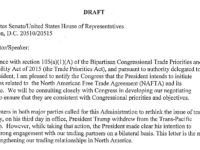My post this week on the recent CRTC’s television licensing decision elicited a strongly worded response yesterday from the Writers Guild of Canada. My original post made two key points. First, responding to Kate Taylor’s assertion that CRTC Chair Jean-Pierre Blais has offered no consistent strategy to the challenges facing the Canadian television production industry, I noted that over the course of the past five years, Blais has charted a very clear path toward making Canadian policy and regulation relevant in the digital age by promoting a competitive marketplace for Canadian creators, consumers, broadcasters, and broadcast distributors.
Second, I defended the recent CRTC decision on several grounds, including the need to address the gap between regulated and unregulated services (such as Netflix), the already-significant public support for Canadian content creation, the incentives for Canadian broadcasters to invest in original content, and the fact that Canadian broadcasters contribute a very small slice of the overall financing of domestic fictional programming which suggests that the harm to the sector from a further reduction is overstated.











